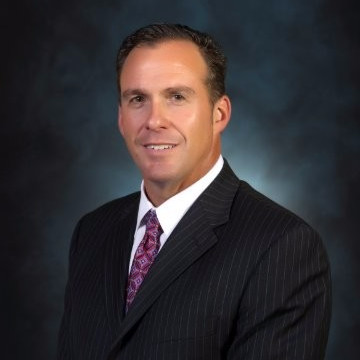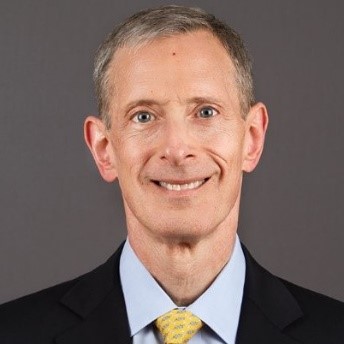More Than Money
A conversation with Reuben Cohen and Bill Harmon: Why it’s time to take a holistic approach to retirement.
min
Bill Harmon dedicated his career to helping people prepare for their lives after retirement—or at least the part of retirement he thought was most important. As the former Chief Client Officer at Voya Financial, Bill and his divisions were responsible for servicing more than 50,000 employee benefit and retirement customers, helping them plan for, invest in, and protect their next phase in life.
“I found it very fulfilling to help people get to that magical moment—the moment where they walked out of their office for the last time, financially ready for whatever comes next. I used to joke that my goal was to be invited to everyone’s retirement party.”
However, recent events have led Bill to contemplate his next opportunity. As he reflected on what he wanted to do next, he was reminded of just how much our jobs impact every aspect of our identities and lives. In his career as a senior executive, Bill had a strong sense of structure, purpose, and fulfillment.
But what impact did this have on all the people he helped achieve their magical moments? Though they had financial security, how did they feel about the transition they were about to make?
“I suddenly realized that financial stability wasn’t the whole story. For those individuals preparing for retirement, it is as much an emotional transition as a financial one.”
A sense of identity and purpose
With over 35 years in the financial services industry, Bill is well-versed in employee benefits and products that help people prepare their finances for life after work. He spent the majority of his career at Empower Financial (formerly known as Great-West Life), where he started as a Sales Representative. He advanced through numerous roles and responsibilities, ultimately ending as Senior Vice President, overseeing the overall growth and success of their core market.
After nearly three decades with Empower, Bill joined Voya Financial as the President of Corporate Markets before accepting the role of Chief Client Officer. When he eventually left this role, he got a glimpse of what life after retirement might be like.

“I considered myself a well-rounded person outside of work, but I was surprised by some of the feelings I experienced as I contemplated what I would do next. Corporate roles provide us with a sense of structure and purpose—and I realized how much of my identity was tied to what I did for a living.”
Bill believes that Employers and Financial Advisors do a good job helping individuals save for life after work, but they focus almost exclusively on the financial side. The reality is that our careers demand so much of our attention and passion that many people, especially executives, underinvest in pursuits outside of work.
This begs the question—if we spend years investing in our financial portfolio ahead of retirement, shouldn’t we treat our life portfolio the same way?
Diversifying your life portfolios
To test this theory, Bill began researching the topic and talking with people (he even surveyed recent retirees to collect more data). He found that, for some people, navigating life after work could be an emotional rollercoaster. While many retirees felt they had existing interests or social networks outside of work, others felt they had few or no activities outside their careers.
“People just don’t spend enough time thinking about what comes next. Many retirees travel or catch up with friends in the first few months, but no one wants to (or can afford to) spend every day away from home once they retire. They are left with a lot of time to fill.”
People like to feel as if they have a purpose—like they are contributing to something larger than themselves. However, many people are caught off guard by the sudden shock of retirement and struggle to find something that gives them a sense of purpose.
Reframing the way we think about retirement planning
The concept of “retirement” is almost always seen as the end of something, often carrying a negative connotation. But what if retirement wasn’t just about closing the book on your last chapter, but also about graduating to the purpose you plan to serve in your next one?
This transition doesn’t need to signify the end of working—especially if the individual still has the passion and energy for work. With the rise of trends like flexible working and fractional experts, Bill believes it’s easier than ever to find high-skill roles that fit any lifestyle.
Retirement planning could take a more holistic approach—conversations with planners, employers, or strategic partners like LHH could help individuals identify opportunities where they can leverage their experience while maintaining a schedule that suits their needs.
“What if these specialists also helped to diversify our life portfolio? In addition to getting our investments in order, they help us plan how we want to spend our time after retirement, whether it’s pursuing volunteerism, passion projects, or working in a capacity that suits our needs and leverages our expertise.”
Bill stresses that this type of planning isn’t just beneficial for the person retiring, but for the organizations they work for.
When executives avoid planning for their next chapter, they are more prone to remain in their current role for longer. As a result, the next generation of leaders may miss out on the opportunities or experiences they need to develop, or they may become disenchanted and leave in pursuit of greater upward mobility. This contributes to challenges with succession planning and leadership development and ultimately leads to talent shortages at the leadership levels
“Supporting transitions helps unclog the talent pipeline and restore the natural career evolution because people move on to something new—something that energizes them. As they’re thinking about what’s next, they are also driving the conversation about who replaces them.”
Building his diversified life portfolio
Bill hasn’t rushed into his next role. Instead, he is seeking meaningful opportunities to support work that connects with his sense of purpose, such as his relationship with Adam’s Camp.
Adam’s Camp is a non-profit organization dedicated to providing intensive therapy for children with special needs. Bill and his family have deep connections to Adam’s Camp. That’s why, when the organization was undergoing a leadership transition, Bill was eager to step in as Interim Executive Director until a replacement was found.
Bill has dedicated his energy to expanding how people think about retirement and retirement planning in addition to his non-profit work. He aims to push the industry to support the emotional transition and help retirees make the most of the exciting next chapter in their lives.
“I have felt so fortunate to be in an industry that helps others be financially prepared for their retirement. As we weave a holistic lens into the plans of those we serve, we have an amazing opportunity to impact the overall fulfilment of retirees in a way that money alone cannot—we can help this community think more deeply about what they want to get from their next chapter.”
Want to learn more about Bill’s work on reframing retirement planning?
Bill Harmon is currently working on a book aimed at helping financial advisors and workers maximize the potential of the exciting next chapter in their lives.
Additionally, he has published three articles on LinkedIn which share some of the findings from his research, including making a more successful transition to a fulfilling lifestyle, how to diversify your life portfolio, and the impact of retirement on marriage and relationships.

Reuben Cohen is the North American Managing Director for LHH's International Center for Executive Options (ICEO). He and his team work as trusted advisors to CEOs and other top-of-the-house leaders, guiding them through career inflection points to a variety of new paths.
Learn more about ICEO’s portfolio of support for executives and senior leaders at www.lhh.com/iceo.